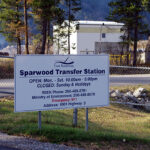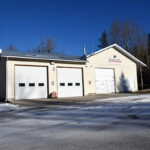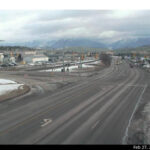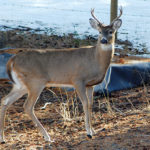Home »

Mankell’s craftsmanship evident in Faceless Killers
Book Review
By Derryll White
Mankell, Henning (1991). Faceless Killers
 ‘Faceless Killers’ picks up right from where Henning Mankell’s book of short stories ‘The Pyramid’ closes. The murder of a farmer drags Inspector Kurt Wallender out of sleep and into the embrace of a Sweden he is feeling more and more alienated from. Ystad is a small southern town the size of Cranbrook, servicing with its police force a sizeable chunk of the Skane peninsula. It is 1990 and the Swedish state is negligent in supporting change and growth within the police service. Wallender feels like a dinosaur in a world passing him by. He is in his 40s, stressed, overweight and his wife has left him. In other words, a model for the typical Canadian male. Also, like any true Canadian, Wallender is always anticipating winter which is mentally never far away from him. I have a strong feeling I am going to like this novel.
‘Faceless Killers’ picks up right from where Henning Mankell’s book of short stories ‘The Pyramid’ closes. The murder of a farmer drags Inspector Kurt Wallender out of sleep and into the embrace of a Sweden he is feeling more and more alienated from. Ystad is a small southern town the size of Cranbrook, servicing with its police force a sizeable chunk of the Skane peninsula. It is 1990 and the Swedish state is negligent in supporting change and growth within the police service. Wallender feels like a dinosaur in a world passing him by. He is in his 40s, stressed, overweight and his wife has left him. In other words, a model for the typical Canadian male. Also, like any true Canadian, Wallender is always anticipating winter which is mentally never far away from him. I have a strong feeling I am going to like this novel.
Mankell is very good at portraying tension, both personal and systemic. He has Inspector Wallender negotiating the trauma of his strained relationship with his divorced wife, estranged daughter and difficult father at one moment, then cleansing that to focus on the needs of an ever-demanding job. Most readers will find something familiar here.
All the same, it is interesting to be here in Ystad, a foreigner with a curiosity, and read Mankell as he uses Canada as the great unknown. “One daughter, who is 50, lives in Canada. Winnipeg, wherever that is.” Well, the novel was written in 1990 and today the bookseller here carries Lincoln Barclay in translation and most locals known where Fernie is, ‘Skiing!” So I suppose the world continues to shrink. One thing that is very familiar to me is that today is Easter Sunday in Sweden, and it is snowing steadily.
‘Faceless Killers’ left me wondering about the world we are leaving for our children. I am sitting here in Ystad looking out the window at a pine forest very similar to that which I walk through in Cranbrook. This is a small town with a huge surge of outsiders flowing through from the Polish and Danish ferries. People are fleeing poverty, oppression and state cruelty. No wonder the Swedes I talk to seem a little distant, a little dour. This novel has disturbed me as it forces me to see the world a little differently. Mankell is definitely not one of your old traditional “whodunnit” writers. He is a craftsman and I suggest you give this novel a try.
Excerpts from the novel
FEAR – Out of nowhere fear appears and seizes him. It sounds like somebody shouting. In despair, trying to be heard. A voice that knows it has to penetrate thick stone walls to catch the attention of the neighbours.
DRAMATIC – “It was worse than you could imagine,” he said. “Wouldn’t you say so, Rydberg?”
“You’re right,” replied Rydberg. “Like an American movie. It even smelt like blood. That doesn’t usually happen.”
THE LIFE – He wondered why almost every policeman was divorced. Why their wives left them. Sometimes, when he read a crime novel, he discovered with a sigh that things were just as bad in fiction. Policemen were divorced. That’s all there was to it.
IMMIGRANTS – Just 20 kilometres from Lunnarp there was a big refugee camp that had been the focus of attacks against foreigners on several occasions. Crosses had been burned at night in the courtyard and rocks had been thrown through windows, buildings had been spray-painted with slogans…. Hostility to refugees was flaring up.
CHANGE – Sweden had turned into a country where people seemed to be afraid of being bothered more than anything else. Nothing was more sacred than ingrained routine.
IMMIGRANTS – The last caller had been a man who refused to give his name. He had proposed that the police join forces with the domestic nationalist movements and chase the foreigners out of the country once and for all.
BUREAUCRACY – Ebba told him that the head of the Immigration Service was on the line. Wallender was supposed to be speaking to a woman. He assumed that all senior government officials were stiff elderly gentlemen full of arrogant self-esteem.
SELF – He [Wallender] had never been particularly inclined to philosophical meditation, never felt a need to delve into himself. Life for him was a matter of juggling practical questions that needed resolution. Whatever lay ahead was inescapable, something he could not change, no matter how hard he tried to give it meaning.
IMMIGRANTS – The insecurity in this country is enormous. People are afraid. Especially in farming communities like this one. You’ll soon find out that there is a big hero right now at this end of the country – a man who is applauded behind drawn curtains. The man who saw to it that there was a municipal vote that said no to accepting refugees.
HUMAN NATURE – Where do our habits come from? he wondered. What secret factory produces our habits, both good and bad?
IMMIGRANTS – If you only knew how many people lived here without residency permits. More than you can imagine. They live together, forge their papers, trade names with each other, work illegally. You can spend a lifetime in Sweden without anyone checking up on you. No one wants to believe it. But that’s the way it is.
JUSTICE – Justice doesn’t only mean that the people who commit crimes are punished. It also means that we can never give up seeking the truth.
 Derryll White once wrote books but now chooses to read and write about them. When not reading he writes history for the web at www.basininstitute.org.
Derryll White once wrote books but now chooses to read and write about them. When not reading he writes history for the web at www.basininstitute.org.







